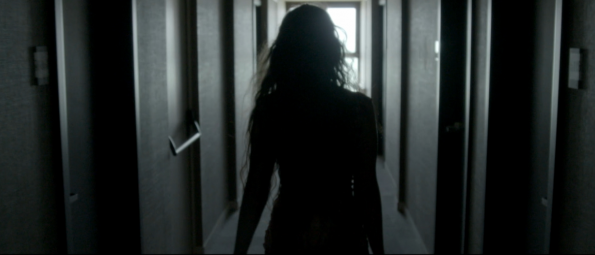SXSW 2017 — Pornocracy
Pornocracy begins with a graphic description of of how drugs are used on some participants in order to facilitate painful and damaging filming of anal sex. By the third act, director Ovidie is conceding that “cam girls” (independent contractors who exchange 70% of their earnings for platform access) — in principle — are conducting a transaction between consenting adults.
In between those two scenes lies a tension that I don’t think the film ever addresses, much less resolves: is porn inherently bad?
Ovidie spends much time contrasting the new pornocracy from the the traditional models of producing porn that are probably still part of the public consciousness. Gone are production companies, shady as they may have been. In are multinational content providers that operate out of tax havens, get most of their content for free, offer much of for free, and use mainstream (and relatively tame) sites as fronts for uglier, more violent and demeaning content.
 The director is interested in the market forces that have caused such changes, and so am I…sort of. I mean, I’ve read enough Marxist theory to understand that the conditions of the culture are the base upon which individual consciousness is built and thus to be concerned about those conditions. But the feminist porn star intellectual — in addition to acting in and directing porn, Ovidie has written over ten books and holds a degree in philosophy — is not a particularly skilled investigative journalist nor forensic accountant. As a result, those parts of the film play like the first act of an espionage film with vague allusions to shadow companies but little concrete explanation of who owns what…or why it matters.
The director is interested in the market forces that have caused such changes, and so am I…sort of. I mean, I’ve read enough Marxist theory to understand that the conditions of the culture are the base upon which individual consciousness is built and thus to be concerned about those conditions. But the feminist porn star intellectual — in addition to acting in and directing porn, Ovidie has written over ten books and holds a degree in philosophy — is not a particularly skilled investigative journalist nor forensic accountant. As a result, those parts of the film play like the first act of an espionage film with vague allusions to shadow companies but little concrete explanation of who owns what…or why it matters.
I asked Ovidie whether she thought porn was intrinsically bad or was simply concerned about its current, unregulated incarnations. “I don’t believe in the [so called] golden age of porn,” she asserted, but neither was she willing to write off all porn as equally problematic. Most human activities are a mix of “good and bad,” and her primary goal in the film is to inform viewers of just how big a market force and presence on the Internet porn actually is. She also stressed that the diminishing role of production companies and content producers caused by the “Uberization” of the porn industry makes content-control, always a difficult task, nearly impossible.
 “For the moment,” Ovidie does not hold out much hope that the film will prompt a positive response or that there can be any positive changes to the porn industry. While she does believe that “porn [on the Internet] will be banned one day,” right now, nobody really wants to regulate it. Those who profit from porn have no incentive to do so, and “moral panic” can lead people to blame porn for a host of problems while never really looking for solutions.
“For the moment,” Ovidie does not hold out much hope that the film will prompt a positive response or that there can be any positive changes to the porn industry. While she does believe that “porn [on the Internet] will be banned one day,” right now, nobody really wants to regulate it. Those who profit from porn have no incentive to do so, and “moral panic” can lead people to blame porn for a host of problems while never really looking for solutions.
I asked Ovidie, who wore a small, jeweled cross on a necklace, whether she had any special message for viewers who approached the film from a faith perspective. Given the volume of pornography that is consumed on the Internet, she opined that is important to understand that this is an issue that affects “everybody,” regardless of race, nationality, or religion.
She pauses for a moment and then adds, “…and everybody’s children.”

